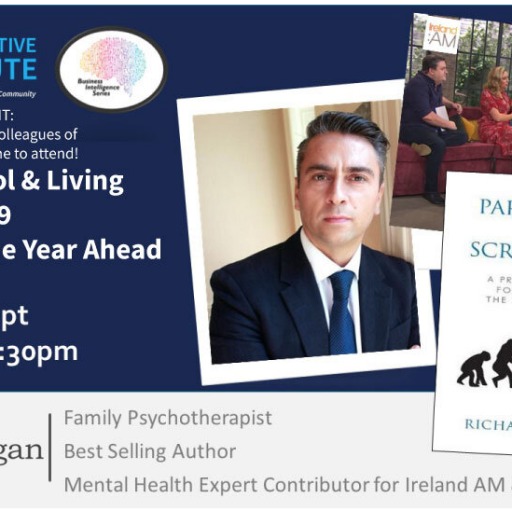Thomas Kinsella has a wonderful poem called, ‘Model School Inchicore.’ In the poem Kinsella explores the notion that the old traditional educational system of Ireland shrank creativity rather than promoted it, writes Richard Hogan.
The opening line is the longest in the poem and the final line is the shortest, representing the reductionist impact our old educational system had on a young developing mind.
And whenever I teach the poem in my classroom, the students generally have a very strong reaction to it because for the most part, they strongly argue that the same can be said of today’s educational system.
I have to say, in my own experience working in the school system for the last fifteen years, I have come to agree with the students.
I see them when they first come into the secondary system; Wide-eyed and full of curiosity, full of questions. The same kids six years down the educational conveyor belt; reticent, afraid to ask a question for fear of getting the answer wrong.
For years I really couldn’t understand what had happened to them.
Why had they lost that sense of wonder, where were all the questions? Maybe it was just the awkwardness of adolescence that I was encountering, but this fear of getting a question wrong or asking what might be perceived as a ‘stupid’ question seemed too entrenched to be a part of some developmental nuance.
When I commenced my training for Systemic Psychotherapy there was a particular way of looking at things that I found difficult. Anderson & Goolishan had an approach to therapy that they called the ‘not – knowing position.’
This meant that the therapist should always be in a state of ‘not – knowing,’ in this position you are always open to receiving and understanding something new about your client.
Something significant so that you do not get caught in the dangerous mind-set of thinking you know your client fully.
The ‘not – knowing’ position prevents the therapist from becoming comfortable in the belief that they have gathered all the information required to understand what the client is experiencing or worse still, they know the correct solution to the issue.
It leaves you in a constant state of curiosity. And when I started studying Family Therapy I found this lens particularly difficult to embrace.
The more I analysed it the more I realised that my own personal experience of the educational system both as a student and indeed as a teacher working in the system had left an indelible mark on the way I thought about knowledge and learning.
I felt I had to know all the answers to the questions the students were asking me, there was no place for ‘not – knowing’ in my lexicon. I had to know, after all that’s what I get paid for!
I’m not suggesting for a second that teachers shouldn’t have a level of expertise on their subject, that goes without saying, but I see the excitement in the students eyes when I respond to a difficult question with; “That’s a great question, I’m not sure I have the solution you’re looking for, lets figure this one out together.”
In Finland they are beginning to approach subjects in a different way. Rather than learning, Geography, History, Maths etc. separately as individual subjects they’re applying the subjects to the problem.
I imagine that would be an exciting way to solve a problem, rather than the near rote approach we have here in Ireland. And why is it that we are stuck in this myopic approach?
POINTS. Nearly all of us have experienced the terror of the points system. Could it be we don’t all learn the same way?
And we all don’t have the same ability to retain vast quantities of information that our brains really have no interest in holding on to in the first place.
The Leaving suits the type of student that finds learning off easy and is very focused and methodical in their approach. What about the student that doesn’t think this way?
We have students that are wound up, stressed and disillusioned. Is it any great mystery as to why they’ve lost their sense of wonder?
Why they don’t ask questions? Why, at the end of the process they are reticent and beaten.
They don’t ask questions because they already know the answer or they’ve been told the answer.
I often look at the students in front of me in the various schools I work in and I question where is the joy in these kids, where is the sense of fun gone?
I have recently returned from working with the Badjao tribe in the Philippines.
It really is hard to find the language to describe these children.
They may not have much in terms of materialism, in fact they have nothing, they live in little huts above the shoreline without any sanitation, with no real opportunity to earn money except for selling pearls but they have so much more. My tour guide, who is a wonderful Filipina woman, said to me rubbing my arm: “You have goosebumps working with these children.”
Watching the Badjao children interact with each other is one of the great experiences of my life.
When I’m working with these beautiful children I often think about the pressure we are putting on our own kids here in Ireland and how we might possibly be stifling that sense of wonder, fun and joy within our children because of our pathological commitment to the points system.
We have to look at the points system and question the impact it is having on our children and how it orients us as teachers in the classroom, we must not forget that fun and joy should be a very important part of learning.




